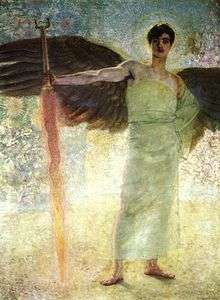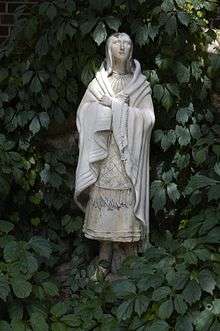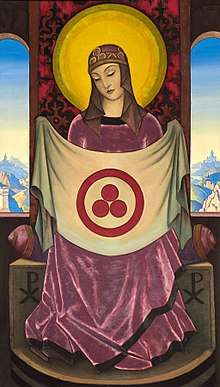
...virginity is better than marriage, however good.... Celibacy is...an imitation of the angels. Therefore, virginity is as much more honorable than marriage, as the angel is higher than man. But why do I say angel? Christ, Himself, is the glory of virginity. ~ St. John Chrysostom, Homily 19 on First Corinthians, NPNF, s. 1, v. 12, pp. 248–262.

Now as a concession, not a command, I say this. I wish that all were as I myself am. But each has his own gift from God, one of one kind and one of another. To the unmarried and the widows I say that it is good for them to remain single as I am. But if they cannot exercise self-control, they should marry. For it is better to marry than to burn with passion. ~ Paul of Tarsus

...the marriage state is to be placed above the state of virginity, or of celibacy, and that it is not better and more blessed to remain in virginity, or in celibacy, than to be united in matrimony... ~ Council of Trent
Celibacy is the avoidance of all forms of sexual intimacy, often for religious reasons.
Quotes
- Celibacy is not merely unknown to Islam, it is unintelligible.
- Anthony Burgess, The Enemy in the Blanket (1958), ch. 5
- Virginity is better than marriage, however good. ... Celibacy is ... an imitation of the angels. Therefore, virginity is as much more honorable than marriage, as the angel is higher than man. But why do I say angel? Christ, Himself, is the glory of virginity.
- St. John Chrysostom, Homily 19 on First Corinthians, NPNF, s. 1, v. 12, pp. 248–262.
- The marriage state is to be placed above the state of virginity, or of celibacy, and that it is not better and more blessed to remain in virginity, or in celibacy, than to be united in matrimony...
- Council of Trent, 11 November 1563, in G. E. Howard, A History of Matrimonial Institutions
- Although Christian "clergy," such as bishops and deacons, begin to appear around the year A.D. 100 in early Christian communities, priests emerge as Christian leaders only much later. Priests came to be the ordained clergy tasked with officiating rituals like the Eucharist or Lord's Supper, also known as Communion.
And what about their celibacy? Even here, evidence is both unclear and late: there were reports that some bishops at the Council of Nicea, called by Emperor Constantine in A.D. 325 to address the problem of heresies, argued for a consistent practice of priestly celibacy. This, however, was voted down at the conclusion of the council. The debate resurfaced a couple of hundred years later, but still without uniform agreement.
Over time, priestly celibacy became a serious point of disagreement between the Eastern Orthodox and the Western Roman Catholic churches and contributed to the Great Schism between the two in A.D. 1054. Pope Gregory VII attempted to mandate priestly celibacy, but the practice was contested widely by Christians in the Orthodox Eastern Mediterranean world.
Five centuries later, the issue was once again at the forefront of debate when it became a significant factor in the Protestant split from Catholicism during the Reformation.- Kim Haines-Eitzen, "The Surprisingly Complicated History of Celibacy and Priesthood", News Week, (3/27/17).
- The fact is for a long time the Catholic Church struggled with its interpretation of Scriptures on priestly celibacy. It wasn’t until the 12th century that priestly celibacy became mandatory.
- Kim Haines-Eitzen,“How views on priestly celibacy changed in Christian history“, The Conversation, (Sep 5, 2018).
- Divergent views on mandatory celibacy for priests contributed to the reform movements in the 16th century. Martin Luther, a leader of the Protestant Reformation, argued that allowing priests to marry would prevent cases of sexual immorality. He drew upon Paul’s letters for support of his views.
On the other hand, leaders of the Catholic Church’s “Counter-Reformation,” a reform and renewal movement that had begun before Martin Luther, did not advocate marriage, but sought to address corrupt practices among the clergy.
Desiderius Erasmus, for example, a 16th century Catholic scholar, wrote a powerful critique of corruption in the Catholic Church. His views may well have been shaped by the fact that he himself was the illegitimate son of a Catholic priest.
One of the most important developments in this period was the creation of the Society of Jesus, also known as the Jesuits, which sought to reform the priesthood in the face of accusations of sexual relations and corruption by, in part, improving the education of priests. In the founding rules of the Jesuit order, emphasis was placed on the importance of celibacy, training and preparation for missionary work, and serving the directives of the pope.- Kim Haines-Eitzen, “How views on priestly celibacy changed in Christian history“, The Conversation, (Sep 5, 2018).
- For now the discipline of celibacy remains firm. Some say, with a certain pragmatism, we're losing manpower. If, hypothetically, Western Catholicism revises the issue of celibacy, I think it would be for cultural reasons (as in the East), not as a universal option. For the moment, I am in favor of maintaining celibacy, with the pros and cons it has, because there are 10 centuries of good experiences rather than failures....
- Pope Francis, On Heaven and Earth, (2010)
- What happens is that the scandals have an immediate impact. Tradition has weight and validity. Catholic ministers chose celibacy little by little. Up until 1100, some chose it and some did not. After, the East followed the tradition of non-celibacy as personal choice, while the West went the opposite way. It is a matter of discipline, not of faith. It can change.
- Pope Francis, On Heaven and Earth, (2010)
- The long period of the dark ages... is due... in a very considerable degree, to the celibacy enjoined by religious orders on their votaries. Whenever a man or woman was possessed of a gentle nature that fitted ... deeds of charity, to meditation, to literature, or to art... they had no refuge elsewhere than in the bosom of the Church. But the Church chose to preach and exact celibacy. The consequence was that these gentle natures had no continuance, and thus, by a policy so singularly unwise and suicidal that I am hardly able to speak of it without impatience, the Church brutalized the breed of our forefathers. She acted precisely as if she had aimed at selecting the rudest portion of the community to be alone the parents of future generations. She practised the arts which breeders would use, who aimed at creating ferocious, currish, and stupid natures. ...
The Church, having first captured all the gentle natures and condemned them to celibacy, made another sweep of her huge nets ... to catch those who were the most fearless, truth-seeking, and intelligent ...and therefore the most suitable parents of a high civilization, and put a strong check, if not a direct stop, to their progeny. Those she reserved... to breed the generations of the future, were the servile, the indifferent, and again, the stupid. Thus, as she ... brutalized human nature by her system of celibacy applied to the gentle, she demoralised it by her system of persecution of the intelligent, the sincere, and the free.- Francis Galton, Hereditary Genius (1869) pp. 357-358.
- Marriage has many pains, but celibacy has no pleasures.
- Samuel Johnson, The History of Rasselas, Prince of Abissinia (1759), ch. 26
- Everyone agrees the celibacy rule is just a Church law dating from the 11th century, not a divine command.
- Hans Kung, Newsweek interview, (July 8, 1991).
- According to Islamic tradition (sunnah), marriage has been deemed to be an essential requirement. Celibacy has been regarded as a malevolent condition fraught with evils.
- Morteza Motahhari Sexual Ethics in Islam and in the Western World [Chapter 1, Sexual Ethics in Islam and in the Western World. Baztab News (2007/08/10). Retrieved on 2007-08-19.
- Sexual Ethics in Islam and in the Western World. al-islam.org.
- PDF format
- Now as a concession, not a command, I say this. I wish that all were as I myself am. But each has his own gift from God, one of one kind and one of another. To the unmarried and the widows I say that it is good for them to remain single as I am. But if they cannot exercise self-control, they should marry. For it is better to marry than to burn with passion.
- All the ordained ministers of the Latin Church, with the exception of permanent deacons, are normally chosen from among men of faith who live a celibate life and who intend to remain celibate "for the sake of the kingdom of heaven."
- Marriage may often be a stormy lake, but celibacy is almost always a muddy horsepond.
- Thomas Love Peacock, Melincourt (1817), ch. 7
See also
External links
- Archive.org Search: Celibacy
- The Biblical foundation of priestly celibacy
- The Reformation view of Celibacy
This article is issued from
Wikiquote.
The text is licensed under Creative
Commons - Attribution - Sharealike.
Additional terms may apply for the media files.